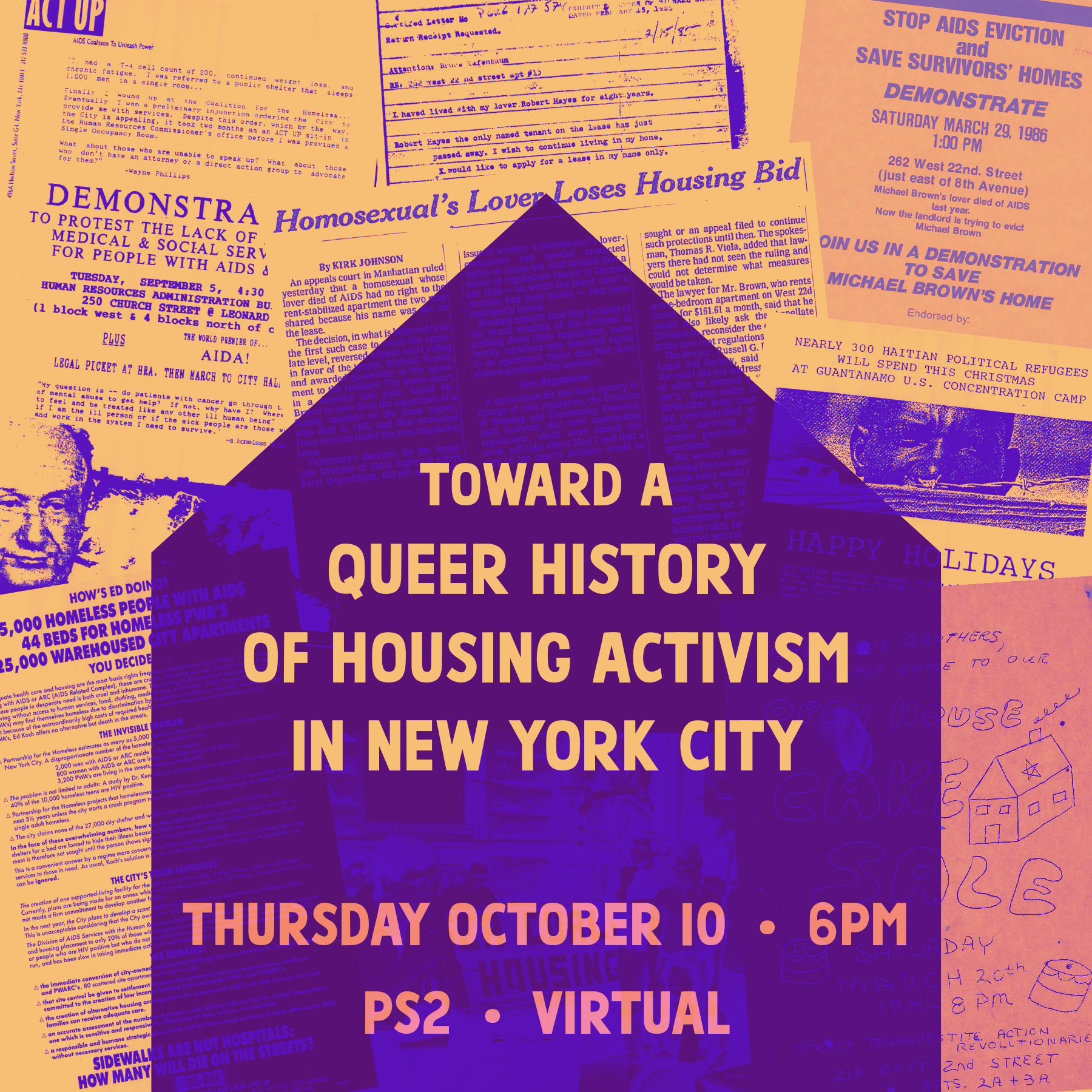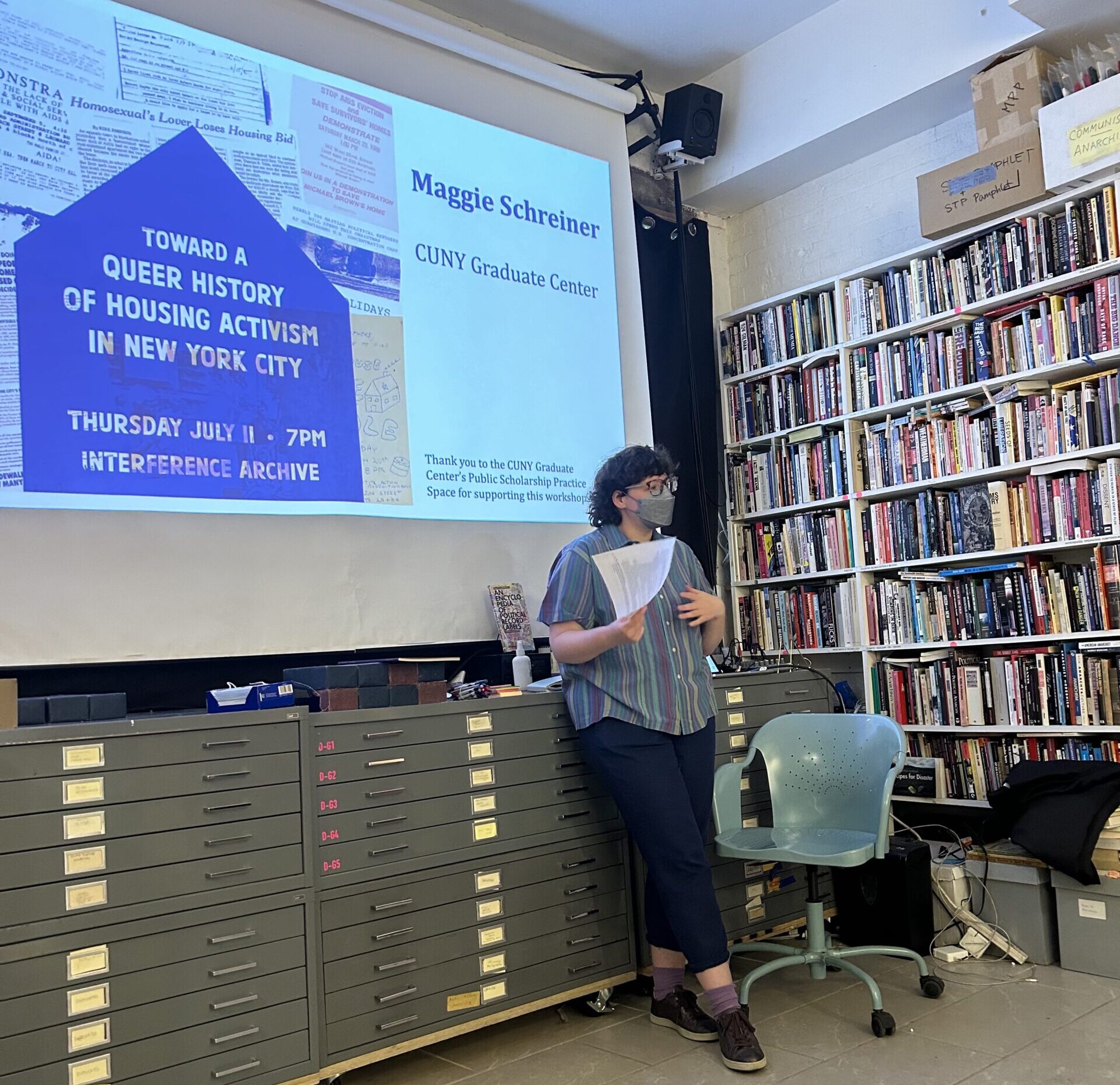
“How can ‘queer housing’ expand the housing struggle for everyone?”
“Came out to my landlord as trans (new name, email, ID). He made no fuss, as he raised rent by $150.”
“I’m on rent strike.”
“Found gay roommates and started organizing our building.”
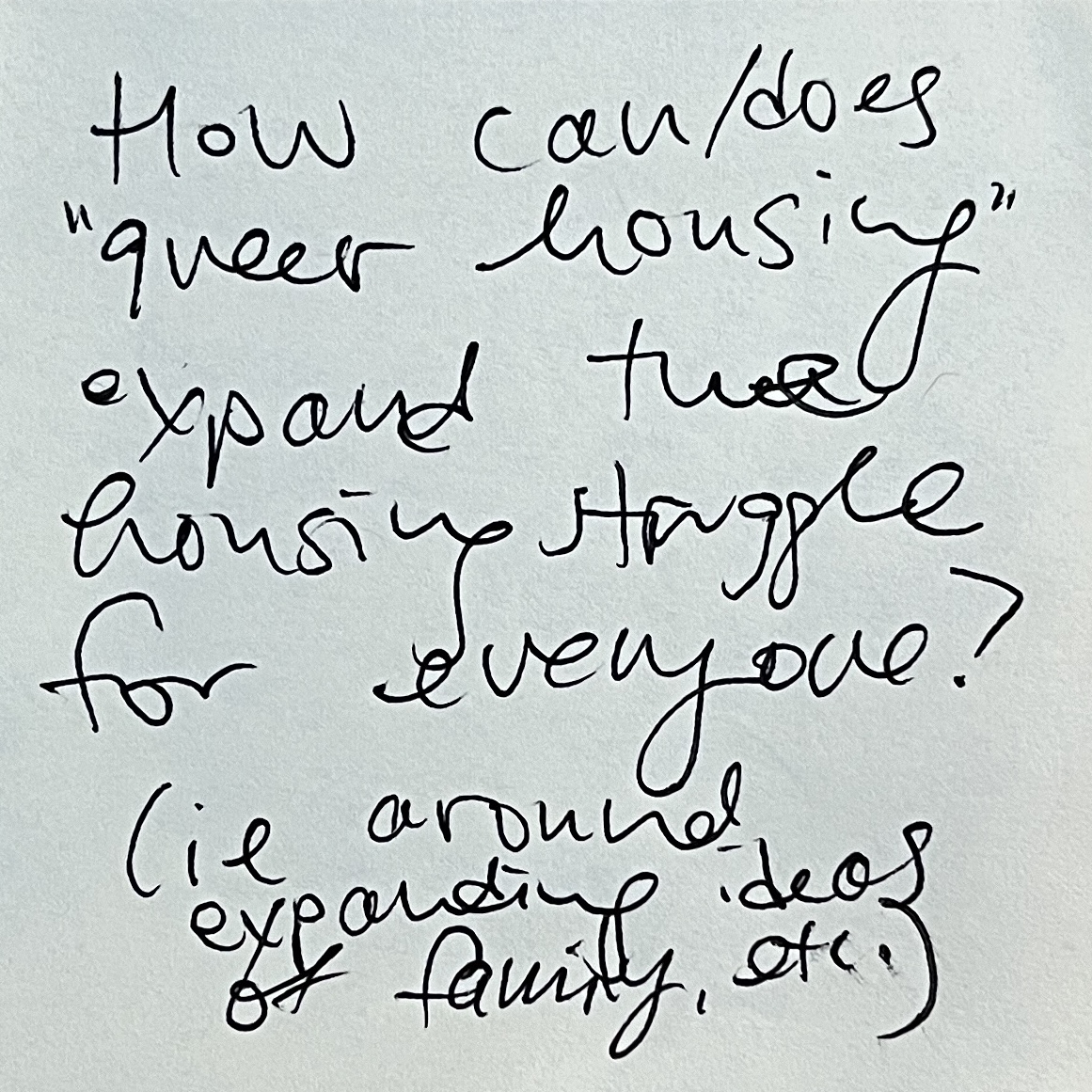
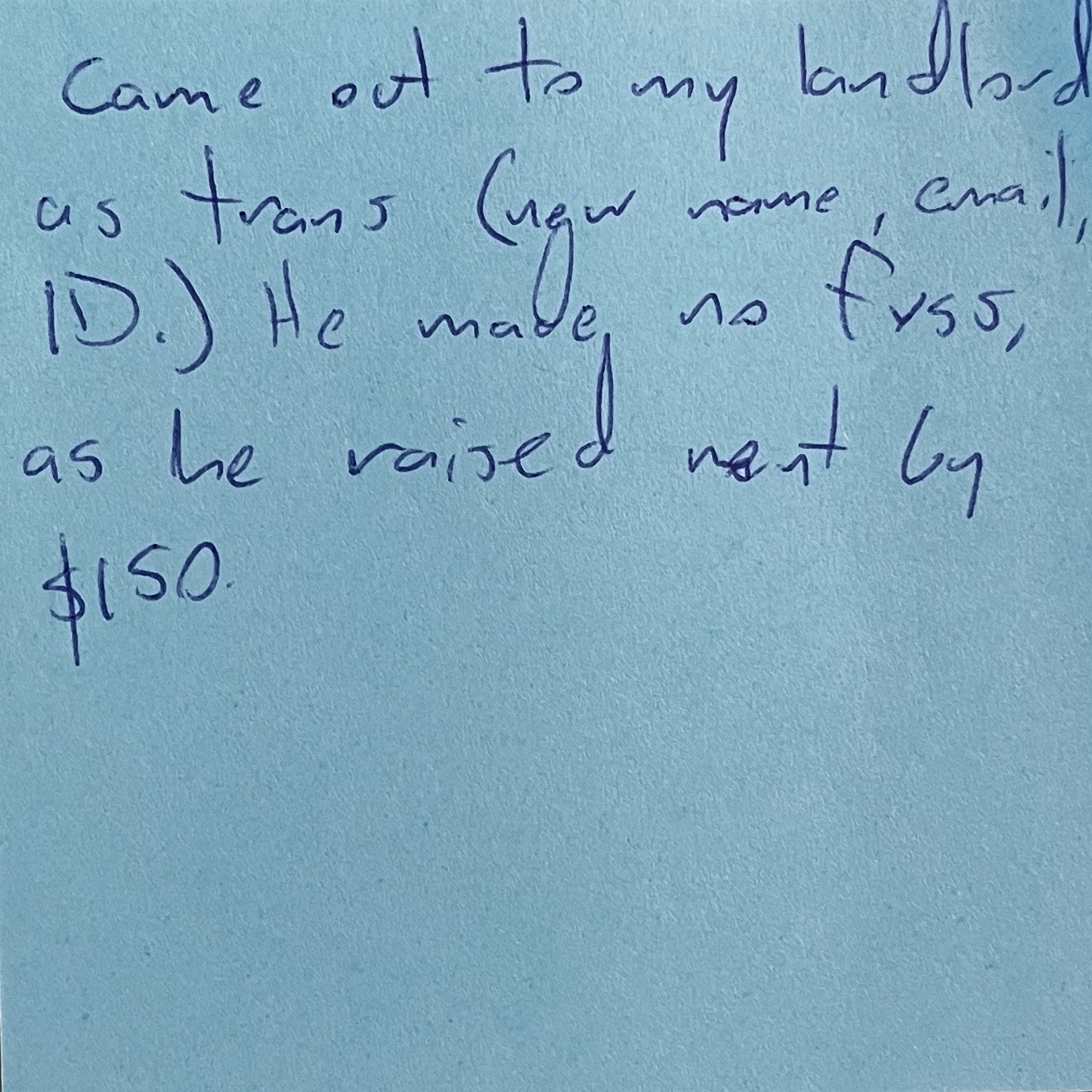
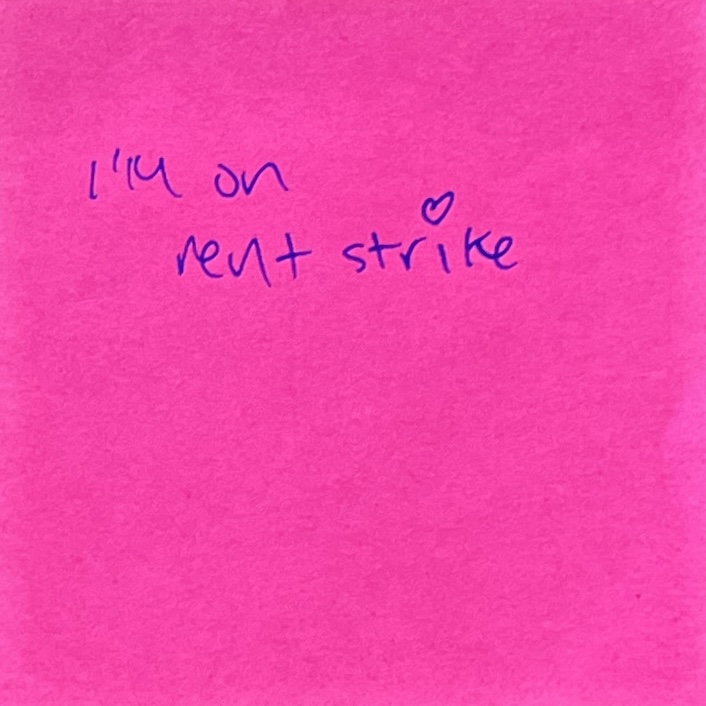
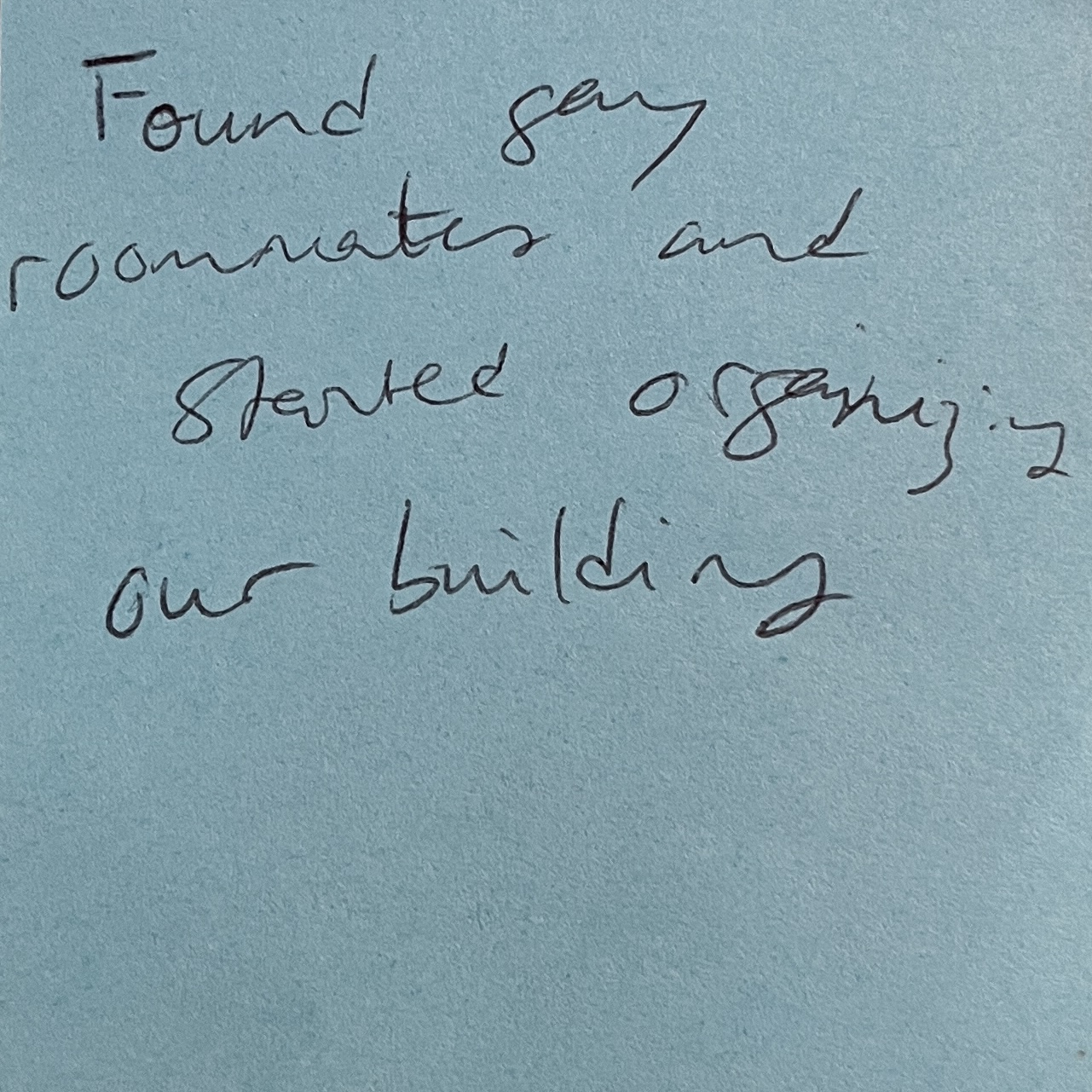
Post-it notes with queer and trans housing stories.
These are some of the queer housing stories shared by participants in a series of workshops “Toward a Queer History of Housing Activism in NYC” during July and August 2024. Over three events in July and August 2024, close to one hundred participants learned about queer and trans housing activism from the 1970s through 1990s, shared their housing stories, and engaged in a facilitated conversation about queer housing issues, and how my research can support current tenant organizing.
During the first hour of the workshop, I presented three case studies drawn from my research. I discussed the housing initiatives developed by the Street Transvestite Action Revolutionaries, situating these within the contemporary survival programs of the Black Panthers and the Young Lords, as well as the upsurge in political squatting in NYC in the early 1970s. The second case study considered changing the rent regulation system to recognize same-sex partners during the early AIDS crisis, through a close examination of the eviction of Michael Brown, a gay tenant organizer in Chelsea, NYC. Finally, the presentation discussed advocacy by ACT UP New York to find housing for HIV+ Haitian migrants detained at Guantánamo Bay in the early 1990s.
The second component of the workshop was a counter-mapping exercise: using an MTA transit map, participants shared their housing stories and questions. The stories shared, such as those above, included rent strikes, dates, housing programs, discrimination, chosen family, support networks, collective housing, and more. Many participants shared recent experiences of squatting, eviction, and housing insecurity – highlighting how NYC’s housing crisis is impacting queer and trans New Yorkers. Participants also posed many questions that will shape my research moving forward: participants asked about housing struggles outside Manhattan, the role of SRO (Single Room Occupancy) housing, the place of mentorship in queer housing struggles, and queer housing practices such as collective housing. These questions push me to re-frame my research agenda by asking: where have queer and trans people found, created, and protected housing for themselves and their communities?
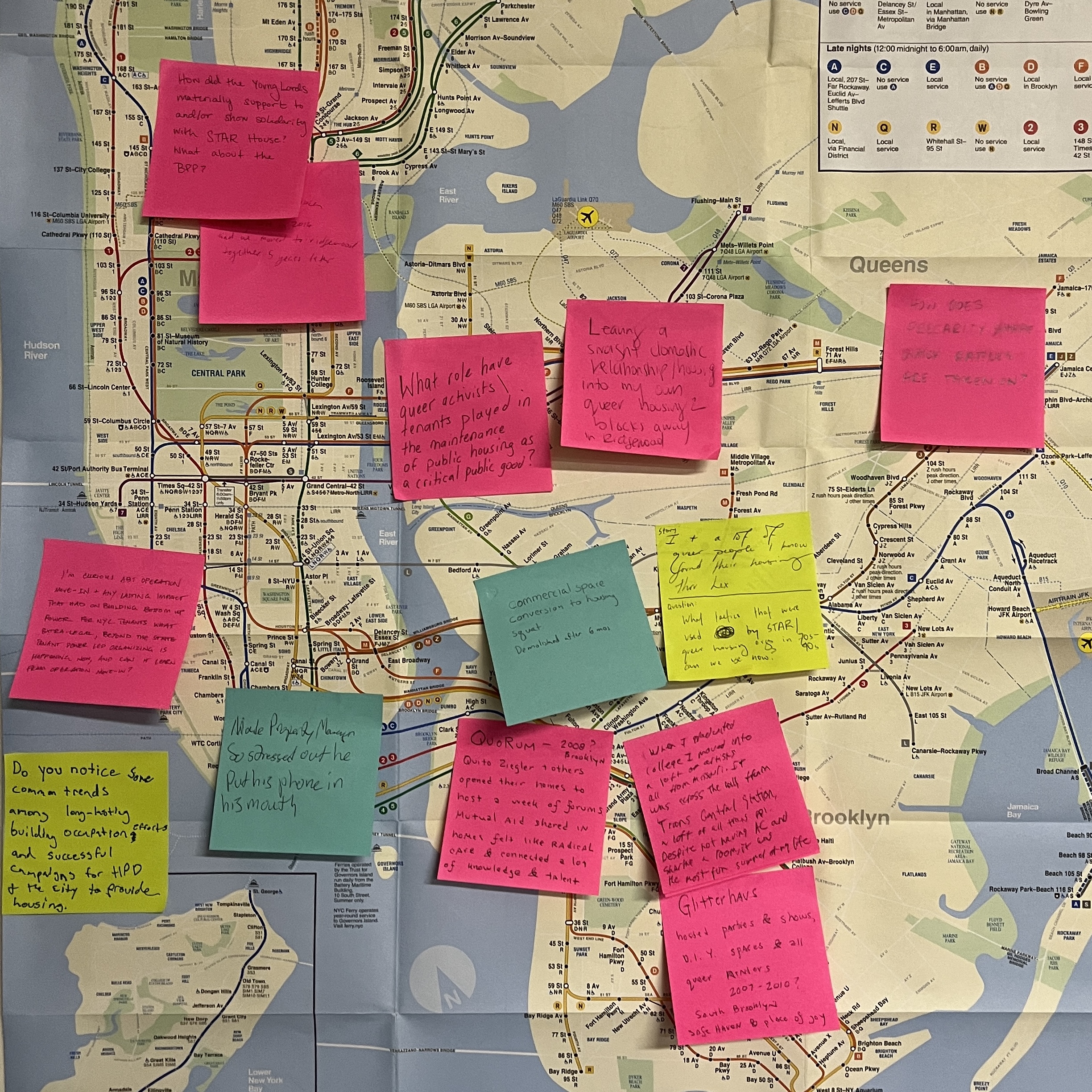
MTA transit map with post-its of queer housing stories from the Ridgewood Tenants Union.
I plan to continue offering this workshop in the future, including a virtual version on Thursday, October 10, 2024 at 6pm with the Public Scholarship Practice Space at Center for Humanities! You can find more information on the virtual event here, and you can follow along with my project @queerhousinghistory on Instagram.
Author
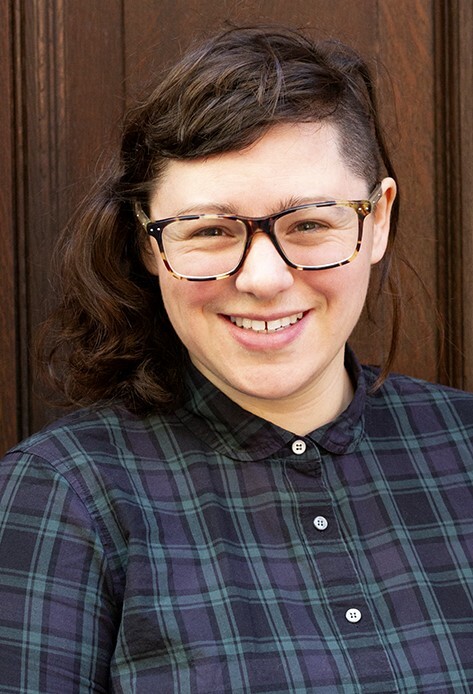
Maggie Schreiner
PS2 Public Research Fellow
Maggie Schreiner is an archivist and public historian, working at the intersection of archives, social justice, and community engagement. Currently, Maggie is a Project Archivist at New York University, where she manages a grant project increasing access to three major downstate New York history collections. Previously, Maggie worked with Queens Memory and Culture in Transit, facilitating local history events at branch libraries across Queens, NY. Maggie is the volunteer coordinator at Interference Archive, an all-volunteer grassroots archive of social movement ephemera, and a core member of Librarians and Archivists with Palestine. Maggie holds an MA in Archives and Public History from New York University and a BA in Central and Eastern European Studies from McGill University.
